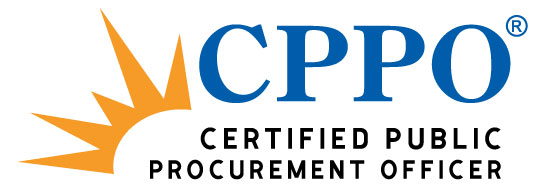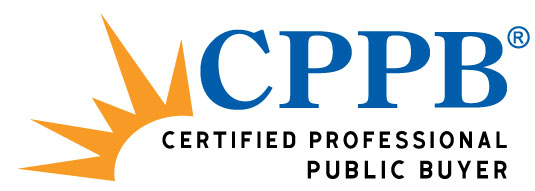2827
UPPCC Announces Broader Eligibility Requirements, New Deadline August 12


Herndon, VA - July 17, 2019 - The Universal Public Procurement Certification Council (UPPCC) announced today that it is introducing new, broader eligibility qualifications for those wishing to apply for the CPPO® and CPPB® certifications.
“You asked, we listened, and we acted," said Kathleen Muretti, Chair of the UPPCC and Manager & Procurement Special Advisor with the City of Airdrie, Alberta. "The proposed changes to eligibility were a key element of our strategic plan and were presented to the Board for approval in April. We achieved the balance of removing some barriers and making the CPPO and CPPB more accessible by recognizing reality-based experiential factors while maintaining the value of this gold standard universal certification."
The updated eligibility requirements recognize the value of an applicant's private sector work experience and allow for a portion of that experience to be applied towards the overall experience requirement. And, the CPPB Program was adjusted to include an option to apply with additional years of work experience for applicants that have not completed a 2-year degree.
New requirements for the CPPO:
- Bachelor's Degree from a post-secondary accredited institution of higher learning
- 96 contact hours of procurement-related coursework/training completed within the previous 10 years, and
- 5 years of procurement experience within the previous 10 years of which a minimum of 3 years is in a management or supervisory position. A minimum of 50% of the required years of experience must be in public sector (remaining experience may be from either public or private sector).
New requirements for the CPPB:
- Completion of a 2-year post-secondary educational program OR 2 additional years of experience
- 72 contact hours of procurement-related coursework/training completed within the previous 10 years, and
- 3 years of procurement experience within the previous 10 years. A minimum of 50% of the required years of experience must be in public sector (remaining experience may be from either public or private sector).
"Given that many professionals in public procurement today have achieved superior levels of competence through improved access to high quality education and training as well as practical, on-the-job experience, UPPCC believes it is time to update and better align the requirements with the various ways in which mastery is developed by an individual," said Ann Peshoff, Executive Director of UPPCC.
For more detailed information on these new requirements, please visit the FAQ's section on UPPCC.org.
The highly coveted Certified Public Procurement Officer (CPPO) and Certified Professional Public Buyer (CPPB) credentials, are recognized throughout the public procurement profession and demonstrate an individual's comprehensive mastery of public procurement. The CPPO and CPPB are widely recognized as the benchmark standard of excellence in public procurement.
In light of the changes, UPPCC has extended the deadline to apply for the fall testing window to August 12, 2019.
Stay current! Be sure to update your MyUPPCC contact information to ensure that you receive all news and updates regarding your certification from UPPCC. And, even if you are not certified, but considering it, set up a new MyUPPPC account, so that you can receive all information and updates regarding certification!
About the UPPCC
The Universal Public Procurement Certification Council (UPPCC) is an independent entity formed to govern and administer the Certified Public Procurement Officer (CPPO) and Certified Professional Public Buyer (CPPB) certification programs. The CPPO and CPPB programs are the most highly regarded and well-respected certifications among procurement professionals and their employers in the public sector.To date, the UPPCC has certified well over 10,000 professionals primarily within the US and Canada as well as in other nations around the globe.